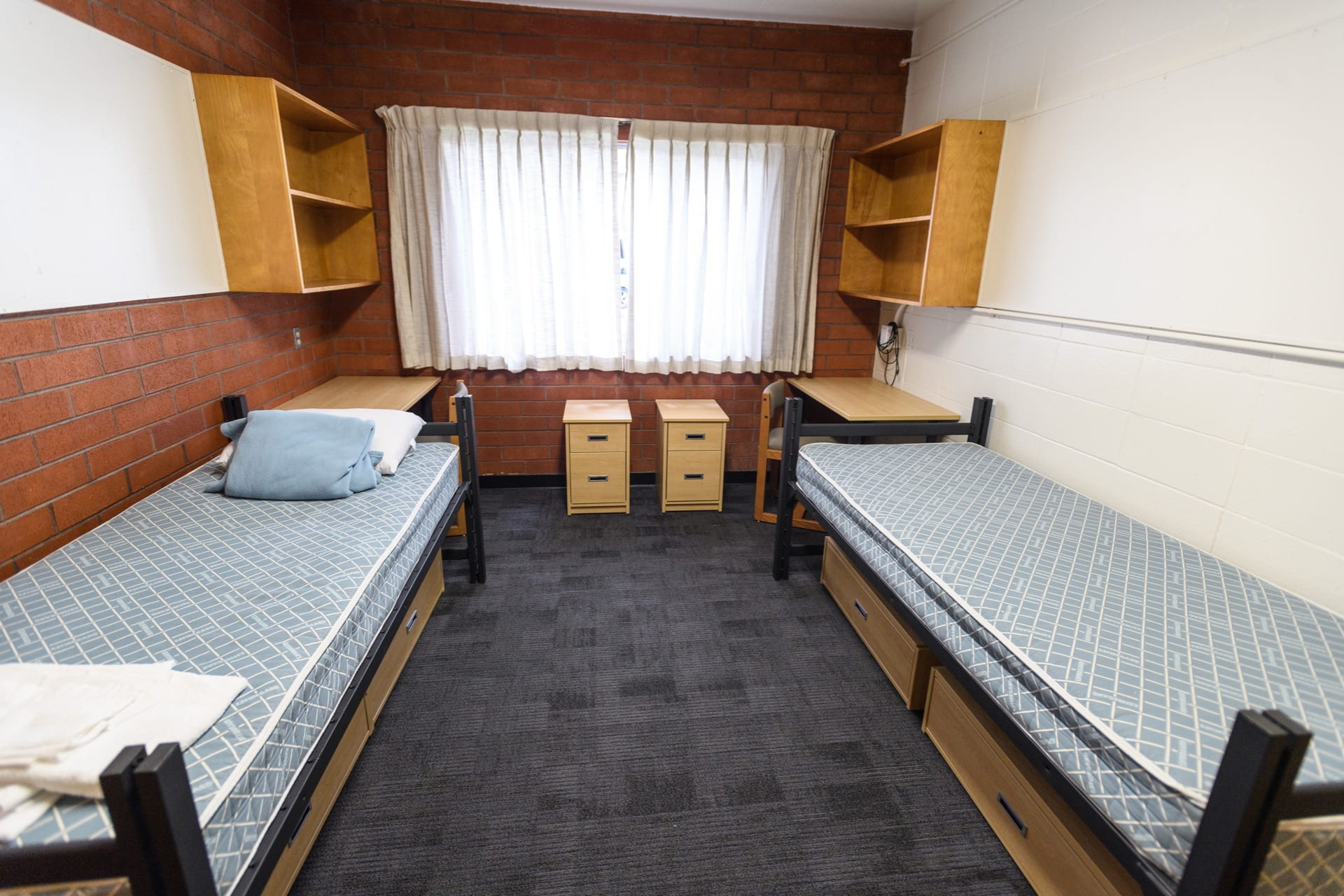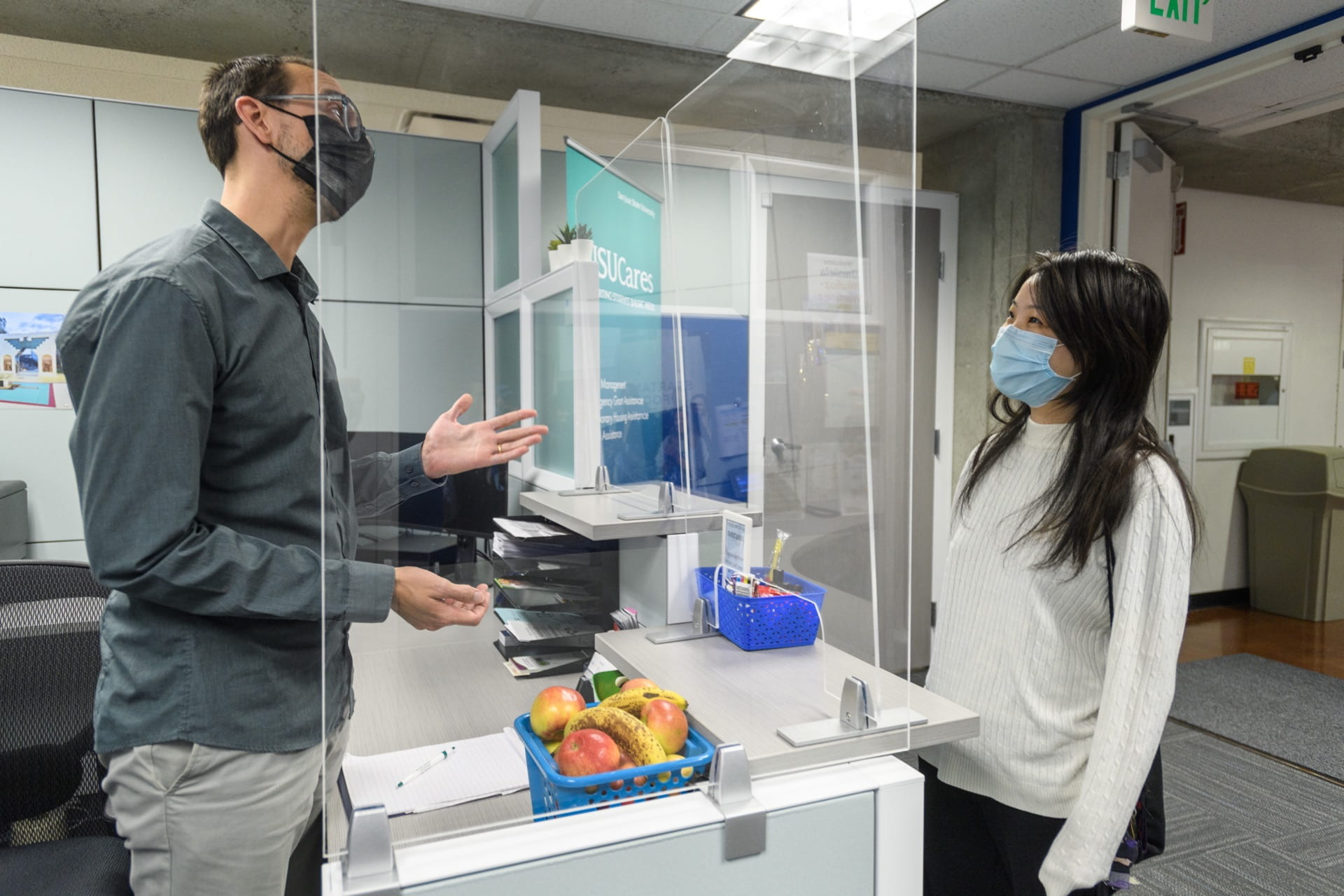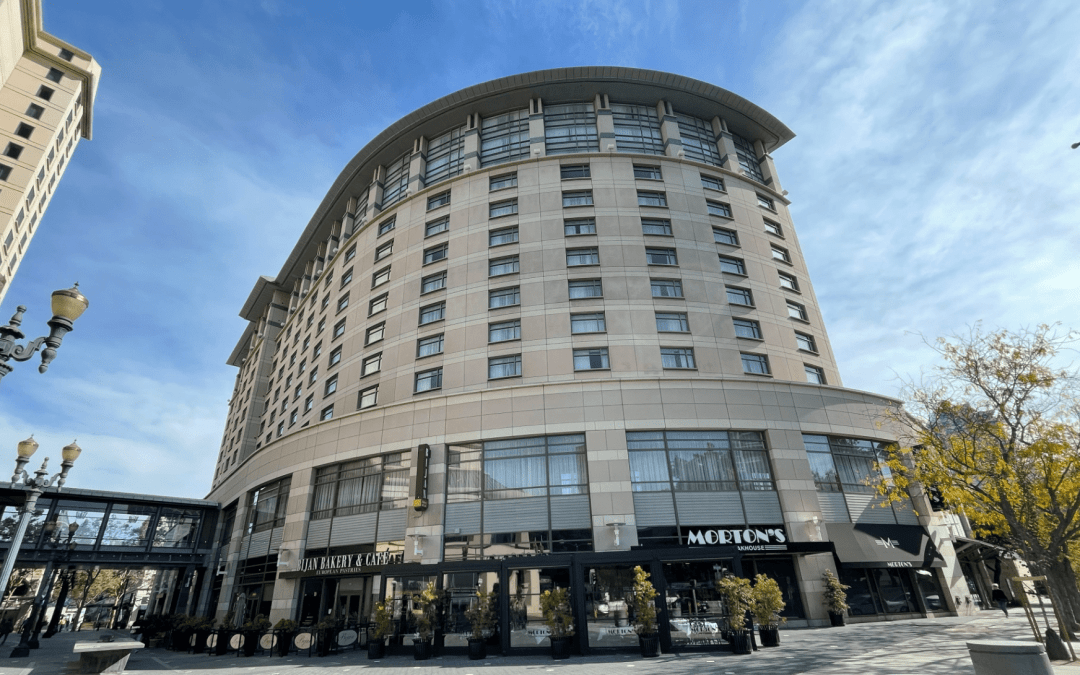San José State Opens Doors to New SJSU Cares Office

Senior Student Affairs Case Manager Ben Falter shows students around the new SJSU Cares office. Photo by Robert C. Bain.
Editor’s note: The article previously mentioned a ribbon cutting at the SJSU Cares office on Tuesday, Nov. 16. The ribbon cutting has been replaced with an open house from 11 a.m. to 3 p.m.
San José State University students seeking help with basic needs, such as emergency food and housing, now have a central place to go for help.
SJSU Cares assists students facing unforeseen financial crises by providing direct support and referrals so students can remain focused on their education. These resources include but are not limited to food, housing, emergency assistance, mental health counseling, mentoring, assistance with natural disasters such as floods and fires, and even responding to burglaries. Students can also be referred to SJSU’s Health and Wellness Center for additional support.
Though the university has offered basic needs services to students as far back as 2008, the new office provides a centralized safe space where students can consult privately with case managers, receive assistance and get referrals to community resources.
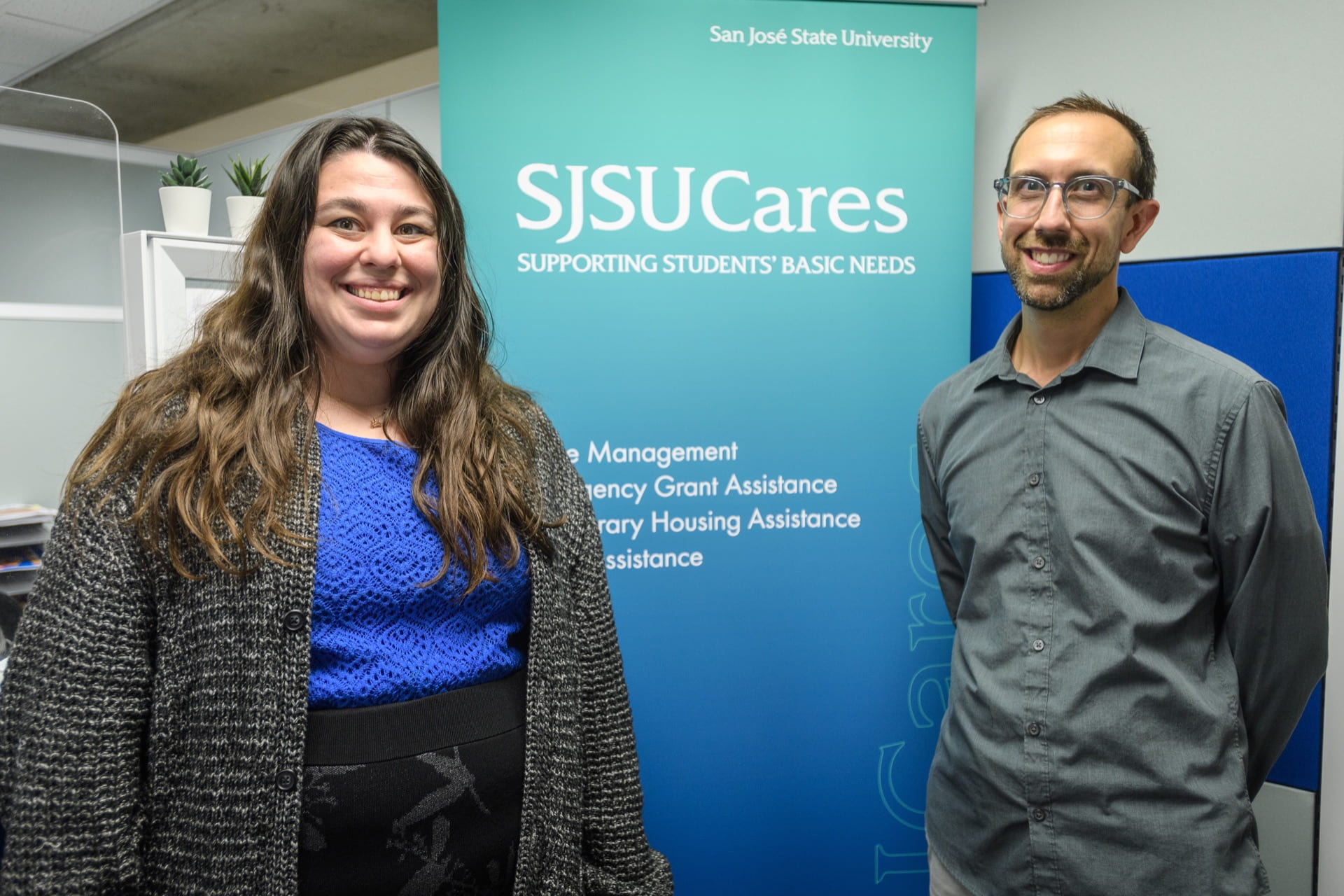
Student Affairs Case Manager Victoria Sexton and Senior Student Affairs Case Manager Ben Falter at the new SJSU Cares office. Photo by Robert C. Bain.
Funding from the California State University (CSU) system, as well as legislation introduced in the state assembly to support basic needs initiatives, made it possible for SJSU Cares to create a permanent location on campus and add staff to provide additional individualized assistance. California SB-129, amended in 2021, now provides an additional $15 million to the CSU system to support basic needs programs.
“Our SJSU Cares program has been and remains an excellent clearinghouse of all our student support services — including offerings such as the Spartan Food Pantry, housing assistance, CalFresh food assistance and other resources — and we are pleased to now have a central location to access that support,” said Papazian.
“COVID-19 has impacted many families and students in ways they could not have predicted, and we do not want those hardships to bring a student’s education to a halt,” she added. “Programs like SJSU Cares and the Spartan Food Pantry can help students overcome those hurdles so they can focus on their studies and continue to thrive in college.”
This comes almost two years after a January 2020 press conference, when the university laid out several initiatives and established target dates for providing comprehensive housing solutions for students, faculty and staff. However, those dates were pushed back when the COVID-19 pandemic began in the United States. Now, the opening of the new SJSU Cares office is a big step in addressing short-term housing insecurity.
“I expect that this central SJSU Cares space will grow student engagement and service effectiveness,” said Catherine Voss Plaxton, associate vice president of health, wellness and student services. “The space is designed to ensure student privacy, but the suite’s exterior will be visible to students coming to Clark Hall for classes, the computer lab and student services.
“The new SJSU Cares office has glass windows with shaded paneling and is designed to be transparent and easy to find, while balancing discretion in accessing resources,” said Senior Student Affairs Case Manager Ben Falter.
In addition to private offices for case managers to meet students, SJSU Cares now has a collaboration space where community partners from places like The Bill Wilson Center or CalFresh can meet confidentially with students seeking help.
“What’s more, the SJSU Cares team and their services partners will be co-located for the first time, creating a one-stop location for basic needs support and closer collaboration across the services,” added Voss Plaxton. “Along with the Spartan Food Pantry, the SJSU Cares office demonstrates SJSU’s commitment to ensuring that every student can secure their basic needs while pursuing their degree.”
SJSU Cares has also doubled the size of its case management team. In addition to two case managers, one basic needs coordinator and one housing case manager, the program will add two more basic needs coordinators. One will support students with the CalFresh program and the other will focus on off-campus housing. Falter added that they are also hiring three student assistants and a full-time office manager.
Assessing student needs
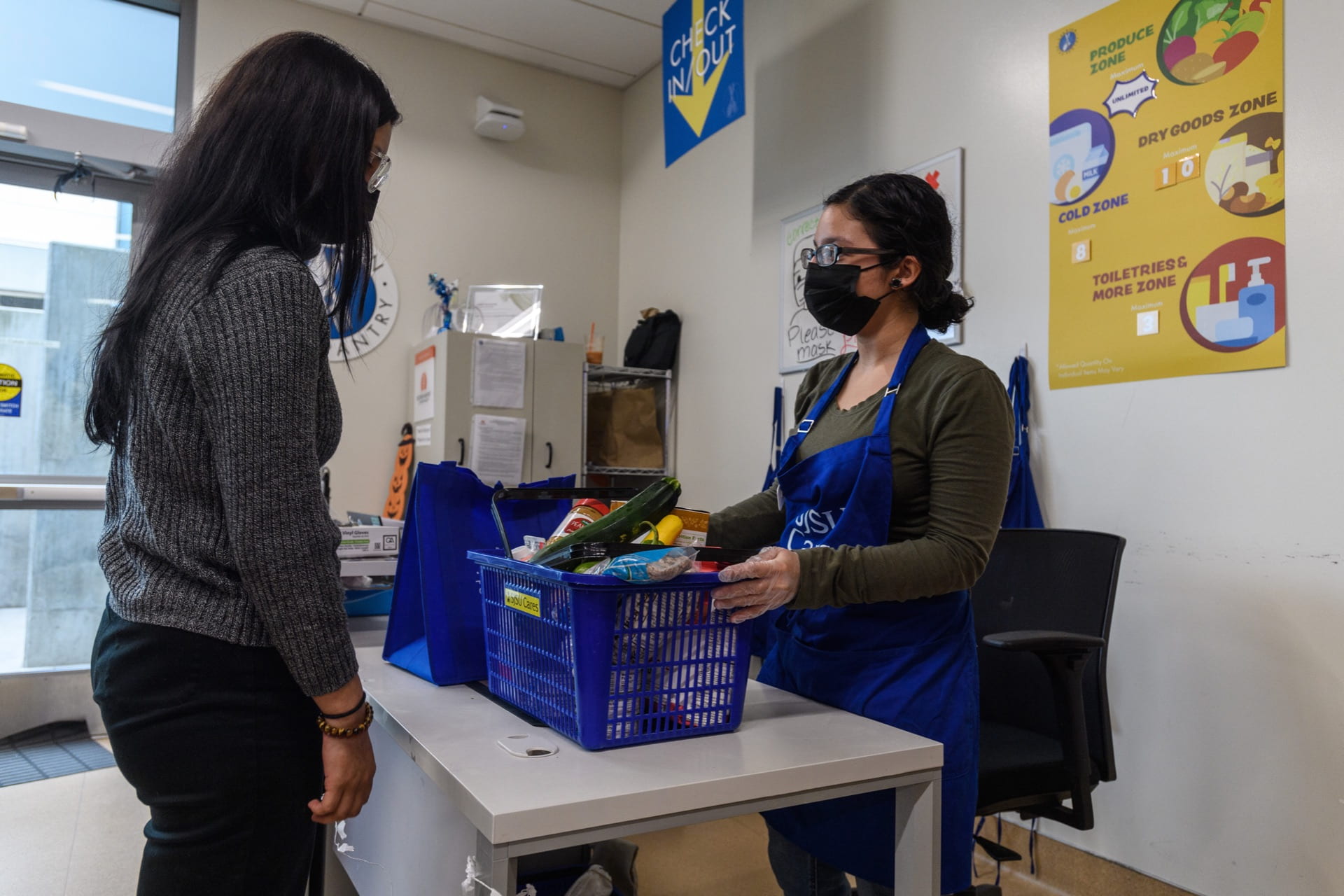
The SJSU Food Pantry offers fresh produce, non-perishable foods, menstrual and sanitary items for students in need. Photo by Robert C. Bain.
The program has grown exponentially over the last few years, fueled in part by results from the inaugural SJSU Cares Basic Needs Survey, collected in February. More than 5,600 Spartans, or about 16.2% of the enrolled student body, answered questions about their basic needs.
“Our purpose was to provide a campus-driven and holistic basic needs assessment,” said Falter. “While there are sobering statistics around food and housing insecurity, not many of the results are truly surprising, as our numbers align in many ways with national statistics.”
Of the students surveyed, 45.9% said the pandemic negatively impacted their employment by a reduction in hours, temporary layoffs or termination. Job loss made it difficult for students to pay their rent, leaving them more vulnerable to food and housing insecurity.
The survey also revealed the average duration of student homelessness was 3.4 days — data that helped the SJSU Cares team align their resources around short-term emergency needs, while also including referrals to community agencies and nonprofits that offer longer-term housing assistance.
Additionally, data from the survey showed that even those who qualified for loans or other financial aid were sometimes lacking in basic needs. More than 44% of students experiencing housing insecurity had loans or other financial aid options available.
“On a campus where 42% of students are Pell-grant eligible and many live in high-cost areas, it’s not surprising that 41.5% of the respondents shared that they struggled with housing insecurity,” said Voss Plaxton.
“There are many examples in this survey of how students who self-identified as struggling with various basic needs had not benefited from related forms of support. This highlights [the need for] all student services offices heavily cross-promoting basic-needs services and making it convenient for students to find and use these services.”
To help let students know these services are available, SJSU is launching the Share Your Spartan Heart campaign, starting Nov. 8 and continuing through Dec. 10. The campaign encourages giving to SJSU Cares and the Spartan Food Pantry, while letting faculty, staff and students know how they can support those programs.
While San José State offered many of these basic needs initiatives before the pandemic, the SJSU Cares team said the past year and a half has shined a spotlight on pre-existing inequities that needed to be addressed.
Falter said the SJSU Cares team remains committed to connecting Spartans to campus and community resources that can alleviate stress associated with housing and food insecurity, thus freeing students up to focus on their education.
Data collected by SJSU Cares between July and September demonstrated that SJSU was able to provide a total of 85 days of temporary emergency housing: 60 through University Housing Services and 25 using a hotel voucher program. During this time, SJSU Cares dispersed over $27,900 in Student Crisis Support Funds to 24 students to support their basic needs. Falter added that nearly 42% of the requests for assistance they received during that time were due to challenges related to the pandemic.
Learn more about SJSU Cares
SJSU students seeking help with basic needs can fill out the Request for Assistance form, which will prompt a case manager to schedule an appointment with you. SJSU Cares also offers drop-in hours for those in need of emergency rehousing. The SJSU Cares team is also available to give presentations about the services it provides.
The Spartan Food Pantry, which opened its doors in 2019 with support from the Second Harvest of Silicon Valley, is staffed by volunteers. There are pantry donation guidelines for those interested in giving food, menstrual or personal hygiene items. SJSU Cares also accepts monetary donations online.

